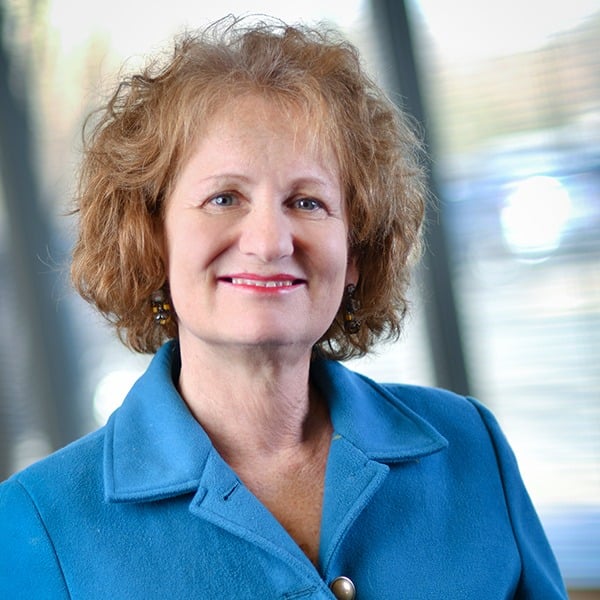There was a recent Facebook video of a newly graduated nurse practitioner in tears, returning from her night shift on the COVID-19 unit. She is sobbing and explains she just “coded someone two years older than me, and they died.” Her grief is unmistakable. Death of a young patient is not a common experience for most practitioners, let alone someone new to practice. The onslaught and volume of critical patients (of all ages) resulting in death is beyond what most providers have ever contemplated as part of care.
The coronavirus outbreak of 2020 caught nearly everyone off guard. But no one is feeling its effects quite like frontline healthcare workers. While the mental health impact of pandemics is not widely studied, research suggests that frontline healthcare workers are experiencing higher levels of depression, anxiety and post-traumatic stress.
Aspects of COVID-19 Impacting Well Being
Along with experiencing greater acuity in patients, as well as death and dying, frontline healthcare workers are concerned with their own well being and exposure to the virus, as well as how it impacts their loved ones at home. In some cases, they are practicing with insufficient PPE. Additionally, constantly changing information and protocols are difficult to keep up with, and this leave clinicians worried about whether they are using best practices for their patients. Uncertainty about the future health of their patients, their own practice and their institution is another concern. In some states, lack of critical care beds, medical equipment and staffing has left clinicians in a position of needing to determine who gets care and who does not.
For those not on the frontline, there is stress of decreased workloads, furloughs, changes to the delivery of care, and even guilt feelings related to their role in “fighting” the pandemic.
Moral Injury and Compassion Fatigue
Moral injury is a term originally applied to veterans of war caused by “perpetrating, failing to prevent, bearing witness to acts that ultimately transgress one’s deeply held moral beliefs,” creating dissonance. The term has more recently been ascribed to physicians when faced with the need to let business and financial decisions influence delivery of patient care. During a pandemic healthcare workers on the front lines may also feel responsible for the death of others where impossible choices need to be made about distribution of life-sustaining equipment, and where life and death decisions need to be made with ever changing guidelines for treating the virus.
Compassion fatigue is an extreme state of tension and preoccupation with the suffering of those being helped to the degree that it can create a secondary traumatic stress for the helper. Whereas with burnout, physicians may find they “detach” from patients, with compassion fatigue, emotional connection continues to the point of distress for the physician.
Various factors can determine the impact of COVID-19 on practitioners, including:
- Percentage of time spent treating pandemic
- Health of self and/or family
- Level of support from family
- Level of support from management
- Access to well being resources and spiritual care
- Existence of peer support
- Access to staffing and medical supplies
- Status of mental health pre-pandemic
- Level of coping strategies and self-care
Care for the Caregiver
 How do you take care of yourself to mitigate the negative effects of the pandemic on your well being? What is within your scope of control? First of all, please remember that your life as a healthcare provider matters, too. It isn’t selfish or self-centered to keep yourself safe. Physicians and providers are trained to put the needs of patients first, and it is part of what makes you so good at what you do. But that does not mean you should ignore your own needs in the process.
How do you take care of yourself to mitigate the negative effects of the pandemic on your well being? What is within your scope of control? First of all, please remember that your life as a healthcare provider matters, too. It isn’t selfish or self-centered to keep yourself safe. Physicians and providers are trained to put the needs of patients first, and it is part of what makes you so good at what you do. But that does not mean you should ignore your own needs in the process.
- If you are in a special circumstance due to your own increased risk or that of family members—let someone in leadership, your partners or HR know, and review options for alterations to your practice.
- Care for your body with proper exercise and nutrition. Movement is essential.
- Download a meditation app and use it. Many are offering free use to healthcare workers including 10 Percent Happier and Headspace.
- Fight isolation by reaching out to peers, family and friends.
- Practice forgiveness for imperfection of self and others.
- Set limits and boundaries on time spent listening to or reading the news. Obviously, you want to stay up to date, but endless opinions of others and human interest stories are likely to have a negative impact on your well being.
- Pause once or twice during each day to check in on your own well being and consider what you might need in the moment or after your work shift to help you cope.
- Remember that fear and anxiety during the pandemic are normal, and best treated by deep breathing, talking with loved ones or a peer and journaling.
- Establish a relationship with a financial advisor or reach out to your financial advisor to discuss recent changes to your income or investments.
It may seem like these recommendations are too simple or obvious to make a difference, but we know that these avenues for self-care can be a significant deterrent to stress, compassion fatigue, burnout and post-traumatic stress.
We Can Help
Members:
As part of your Physician Well Being Resources, you have access to Peer Coaching, in-the-moment behavioral health support, face-to-face or virtual counseling, a concierge service to help with work/life balance and much more. These resources can help you explore, understand and manage your feelings of stress, anxiety, burnout and compassion fatigue related to your experiences during COVID-19. Contact us at 877.731.3949 or through the VITAL WorkLife App to access your resources.
If you are interested in learning more about our proactive solutions to support the well being of your physicians and advanced practitioners, contact us online.
Sources:
https://www.jwatch.org/na51190/2020/03/27/mental-health-effects-covid-19-healthcare-workers-china
Litz BT, Stein N, Delaney E, et al.: Moral injury and moral repair in war veterans: a preliminary model and intervention strategy. Clin Psychol Rev 2009; 29:695–706 Crossref, Google Scholar
https://www.statnews.com/2018/07/26/physicians-not-burning-out-they-are-suffering-moral-injury/
Tulane University professor Charles R. Figley, MD, whose 1995 book on the topic essentially founded the study of workplace stress among human services providers.


